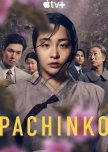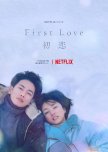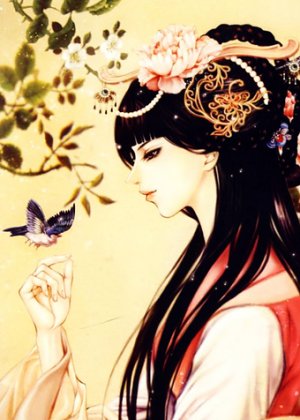
A masterful adaptation...
Pachinko, in many ways, was a wakeup call for me. Xenophobia as per a Eurocentric narrative, has always been so intrinsically linked to a difference in the color of your skin, that it was jarring to see it happen to a group of people who are almost visually indistinguishable from their oppressors on the basis of skin color. Even then, it was humbling to see that the human heart is capable of so much hatred, that such experiences are almost universally unifying, irrespective of which side of the globe you're in. You'll always be an 'other' to somebody's 'us'. Nationalities, ethnicities, language and cultural differences are merely human constructs to 'leave other people out'.With an Oscar Winner and a Hallyu star onboard, the team behind Pachinko could have easily succumbed to letting either of them steal the spotlight, but I'm happy to say it turned out to be the kind of project where the actors serve the story, and not the other way round. Kudos to the team for telling the story with 100% honesty and sincerity!
Within half a standard k-drama runtime, I'm impressed with the number of SO many wonderful cinematic moments of storytelling! And a large part of the credit must be given to the absolutely genius creative decision of telling the story un-chronologically. It's poignant to see parallel intersplices of the past and present within the same episode (like a young Sunja preparing to leave for Japan VS the elderly Sunja packing to revisit her homeland). But it's particularly even more poignant, when the events interconnect across episodes (a nostalgic elderly Sunja tasting her homegrown rice in ep3 VS a young Sunja being fed the same grains of rice, lovingly cooked by her Mum on her bethrothal dinner as perhaps the last meal on her homeland, in ep4). There is so much of bittersweet and poignant context that would have been lost, had the story been told linearly.
Kim Minha as Sunja is nothing short of a revelation, especially in the more emotionally demanding scenes. I felt as invested in her story from the first glance, much like her future suitors. Minha's freckled beauty, husky voice and her acting style sets her apart from cookie cutter k-actresses, and I feel she has a bright future ahead, similar to the likes of Kim Go Eun and Kim Dami. Minha's performance made me feel all of Sunja's desperation, conflict, and bravado. I do think humbly, that her line delivery could see some improvement....
While the story itself is the main meat of the show, it is elevated to the level of a visual feast because of the technical and hardware department. The cinematic vibe and the grand scoring were the absolutely perfect seasonings required for the 8ep serving, satisfying the drama-watcher's heart in me. I do hope Pachinko gets renewed for season 2, as it will be such a shame not to see Sunja's story be completed on this visual medium.
Vond je deze recentie nuttig?

Deze recentie kan spoilers bevatten
Honestly.... a mixed bag.
I loved how Hatsukoi's trailer promised a modern touch despite all the old-school (read: classic) tropes. Never thought, the one characteristic of this drama that I looked forward to the most, would turn out to be so polarizing for me. The quiet and mellow narrative quality struck out to me as akin to an indie-movie. Which isn't problematic per se, but I would have still preferred my 'big moments' to be delivered as punchy and gut-wrenching. Dialing down the dramatic tension did disservice to what should have felt cathartic. It's certainly not how dramas would choose to deliver them.
Which brings me to my next point. I find the down-to-earth tones of a good slice-of-life j-dorama particularly endearing. However, for a 'fated' love story such as Hatsukoi, I question whether inundating the viewers with the mundanity, humdrum and the hardships of Yae's daily life was really the correct decision. The background noise from the never-ending series of details keeps us from fully realizing that the biggest tragedy in her life was indeed forgetting Harumichi (aka her first love).
Yes, her life is sh*tty, we get it. The writers didn't have to make it the 'bigger story to tell', is all I'm saying.
As for Harumichi, I was somehow hoping his defense background would have a part to play in how miserable and difficult his life has been too. But aside from a brief mention of a back-injury he received on the line-of-duty, and the Sendai Earthquake which doesn't play out exactly how you'd imagine in an angsty love-story... his character arc feels inconclusive because of details and events which add up to nothing. Again, I wish the writer did not undersell the 'real tragedy' of his first love being forgotten. And that his character background was realized to a fuller potential.
The movie-like treatment isn't entirely all negative though. Hatsukoi's strengths lie mainly in its cinematic narrative structure and I quickly ended up being a fan of its non-chronological storytelling. It lends a modern flair to melodrama-stories of the past with lengthy flashback arcs. The camera-language is beyond beautiful and the snowy Hokkaido landscapes were absolutely dream-like! The hardware department of the production has aced it, and viewers can clearly see where the money went! I enjoyed the performance of the younger actors, who were downright adorable (and sold the story more than the senior actors imo). The writer also cleverly sprinkles red-herrings throughout the early episodes, which kept me guessing from 'are Harumichi & Yae dating in the present or just heading their separate ways?' to 'is Tsuzuru Harumichi's son, and if so, how?' Made for an engaging watch, despite the obvious story flaws.
Bonus: the theme song (First Love by Utada Hikaru) isn't played to death, thankfully! :D
In conclusion, Hatsukoi is a good one-time watch, and even more so, if you aren't exactly a fan of old-school dramas. From a technical point-of-view, the drama appears super polished. My extremely biased POV is only a result of over-expectation, and anticipating the drama for TWO years.
However, it is my advice to ardent fans of the classics... you would miss those emotionally hard-hitting moments and the grandeur of larger-than-life love stories. Stick to Winter Sonata instead, if you wish to ugly-cry!
Vond je deze recentie nuttig?


 1
1






















